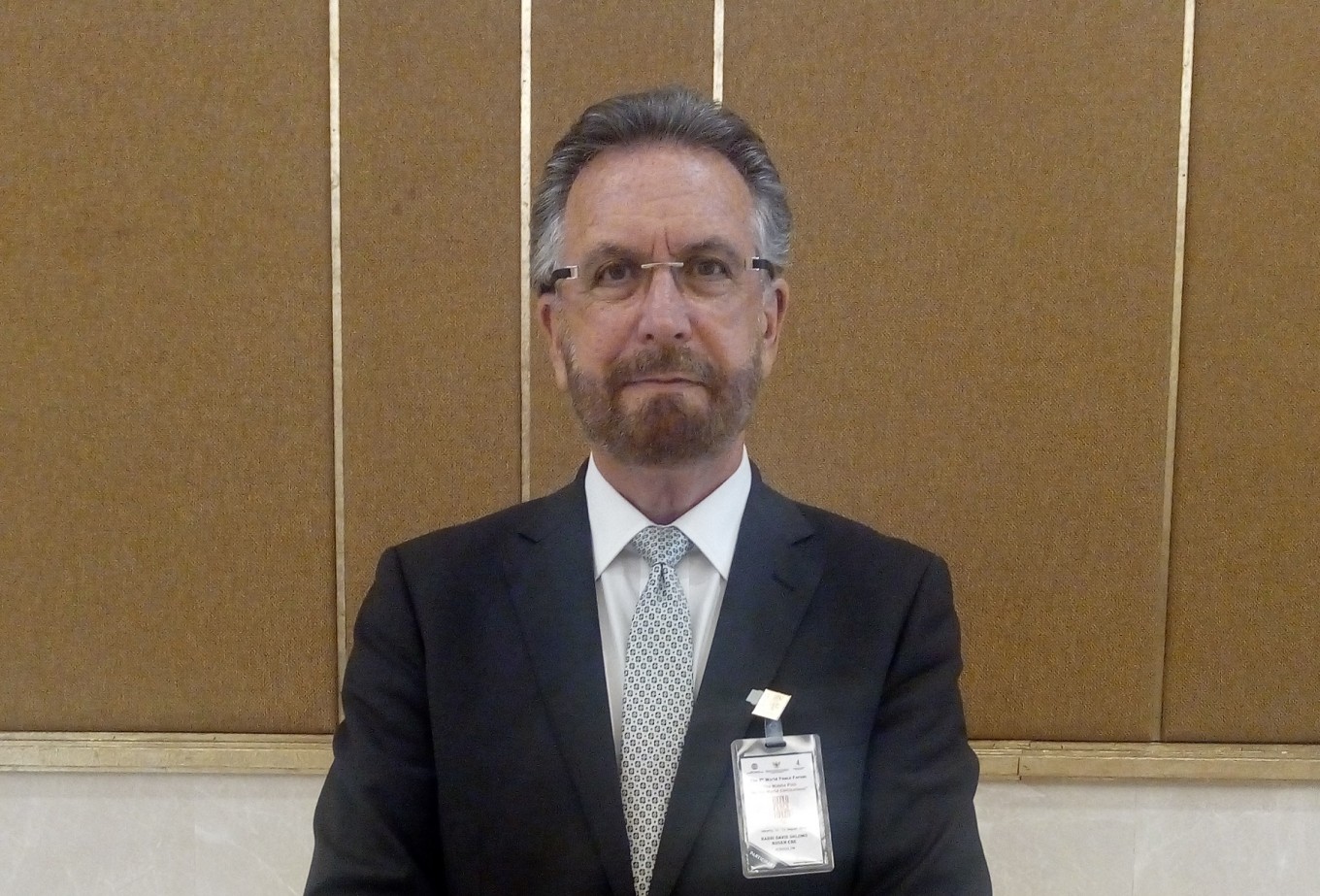Popular Reads
Top Results
Can't find what you're looking for?
View all search resultsPopular Reads
Top Results
Can't find what you're looking for?
View all search resultsRabbi Rosen on ‘wasatiyyah’ and Indonesia-Israel relations for peace
Rabbi David Shlomo Rosen says Indonesia needs to have a relationship with Israel to resolve Israel-Palestine conflict.
Change text size
Gift Premium Articles
to Anyone
D
avid Shlomo Rosen, a rabbi and the international director of the American Jewish Committee’s (AJC) Department of Interreligious Affairs, was among the speakers at the biennial World Peace Forum (WPF) in Jakarta, which ran from Aug. 14 to 16, and which in its seventh installment took on the theme of "The middle path for the world civilizations".
The Jakarta Post’s Liza Yosephine and Sausan Atika Maesara recently sat down with Rosen on the sidelines of the WPF to talk about his perspective on the middle path to achieving peace, as well as the Israeli-Palestinian conflict.
Here are some excerpts from the dialogue:
Question: In your perspective, what is the middle path?
Answer: So, my understanding of the Islamic concept of wasatiyyah is more than simply the idea of Aristotlean golden mean. Because Aristotle already had said that characters have to be balanced, and if you're going in one extreme you need to balance it by going to another extreme.
So he would talk about, like, the difference between greed on one side and being stingy on the other side and finding some balance in the middle. But I think wasatiyyah, the middle path that Islam teaches, is much more than that.
It's a recognition that we have different values and needs and that these have to be integrated and balanced creatively and responsibly. It means compromise but not in the sense of weakness, but in the sense of the fact that you have to find how to be able to integrate values when there are conflicts of interests and even conflicts between them.
So for example, peace is a value. Justice is a value. But if you try to pursue absolute justice, you might not have peace because then somebody will very unhappy. And if you try to pursue peace exclusively, you might not have justice. So you have to find a way of balancing this.
And a creative balance, which would be comprised there, would be for me an example of wasatiyyah, of the middle path.
With the discussion taking place in Indonesia, do you have any take on how you think Indonesia should go in the way forward toward achieving this middle path?
For Indonesia itself is not for me to tell Indonesians how to move ahead. I think I get the impression that you're doing quite a good job. And I think that as long as you don't allow extremism to manipulate your society, then you're on the straight [path].
I do know that there are threats in this regard to Indonesia, and I hope that Indonesia succeeds in standing up to these threats and would not allow extremists to hijack political or partisan interests for their own purpose.
I think Indonesia has a contribution to make to the world and actually as somebody who lives in Jerusalem and in the Holy Land, I would like to see Indonesia make a contribution to resolve the Israeli-Palestinian conflict.
I think Indonesia as a country of such importance, such resources and the largest country in terms of Muslim population, could play a very special role. But in order to do that, it needs to have a relationship with both parties.
It's not enough just to have a relationship with Palestine, it needs to have a relationship with Israel as well.
What is your perspective on the Palestinian-Israeli conflict?
My perspective is that it has to be resolved. And that it's very important not only for the dignity of the Palestinian people, but for the security of the state of Israel, to establish two states.
And it is a tragedy that at the moment, the leaders of the parties are not able to do it. Therefore, we need international support. And I think it would be wonderful if Indonesia was to help us do it.
What do you hope that the World Peace Forum discussions from these three days will achieve in the end?
So I think all interfaith gatherings are important, first and foremost as a demonstration to the world that thanks to people like you the message gets out. And that we show that religions are not as are often misrepresented in conflict with one another, or, should not be in conflict with one another.
But are different paths to God. If God has created us in our diversity and relates to us in different ways, there must be different ways to relate to Him. And that these religions not only can, but desire to cooperate and collaborate for the betterment of humanity.
I think that gives people a very different perception of religion, a better understanding of religion, makes them better religious people.










